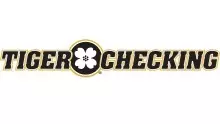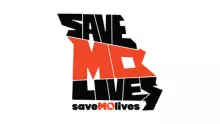Nutrition and Supplementation
A few points to consider about the Performance Diet:
- The Performance Diet is unlike any other diet you have ever tried because it works!
- There are no fast or easy results and it does not come with a money back guarantee.
- You will need to make a genuine, self-motivated commitment to change your eating habits.
- Healthy choices made consistently are the small steps on the ladder to success.
Goals of the Performance Diet:
- Plan your meals and snacks to make positive food choices possible.
- Eat balanced meals with a variety of wholesome foods each day.
- Avoid extremes, no food is off limits, but moderation is essential.
The Players
Carbohydrate
Simplest definition: Potential Energy. The body's preferred fuel source for basic functions and intense training. Provides four calories per gram of carbohydrate consumed. Carbohydrates (i.e. carbs) should supply the majority of your total calories each day. Carbohydrates can be either simple or complex and will affect your energy levels and performance differently depending on the amount eaten, and how much fiber and fat they provide. This proportion of nutrients and the effect it has on your overall blood sugar content is known as the Glycemic Index (GI) of a food. Foods with a high GI will lead to a rapid spike in your energy levels followed by a drastic decline. Whereas, foods with a lower GI will provide a more steady supply of energy which can improve your performance in practice and competition by sustaining your energy levels.

Protein
Simplest definition: Muscle. Is a combination of individual pieces (amino acids) that unite to form one functional unit or fiber, that will contribute to assembling an individual strand of muscle. Protein can supply energy if carbs or fat are not available but is the last resort fuel for your body. Protein can provide four calories per gram if necessary. Adequate protein intake in your diet is critical to the recovery process following training, especially strength training.
Fat
Simplest definition: Stored Energy. The largest and most efficient fuel source available to your body. Fat is an essential nutrient in your diet and also helps to provide a feeling of satisfaction after a meal. The reserve supply and compliment to Carbohydrates, fat provides nine calories per gram. Your body will strive to protect a specific amount of fat stores based on your individual genetics.
The Game Plan
- Schedule meal planning and nutrient timing to improve mood, increase energy and enhance performance. Eat breakfast within one hour of waking up everyday. Break the overnight fast by fueling your body for the day. Eat small frequent meals early and often. Ideally five to six small meals each day, eaten every three to four hours. Drink water throughout the day. With every meal, before bed and when you wake up. Carry a water bottle to class. Make pre and post-workout nutrition a priority. Try not to skip meals before, eat as soon as possible after training.
- Choose balanced meals with a variety of foods that you like to eat and others you know you need to eat. Choose meals and snacks composed of more carbohydrate than protein, and more protein than fat. Substitute calorie-dense carbohydrates such as white breads with nutrient-dense carbohydrates, specifically fruits and vegetables. Select a rainbow of colors for your fruit and vegetable choices and especially salads. Select wholesome foods that are not processed and packaged. Fruits and nuts as snacks instead of potato chips. Limit obvious poor choices such as fried foods, dressings, soft drinks, sweets, and alcohol.
- Avoid extremes when planning meals and making your food choices each day to reinforce healthy habits. Restrictive dieting doesn't work! Fads don't last. Atkins is the craze now, low to no fat diets were 10 years ago. You can eat almost whatever you want, just not however much of it you want, whenever you want. Eat your favorite indulgences (sweets, pizza, fast food, ethnic choices) in moderation only a few days per week.
The University of Missouri Nutritional Supplementation Policy
Before you use any supplement you should ask yourself is it S.A.F.E.?
S = Supposed benefits. What claims are being made to aid in your training and performance? Is this the best option?
A = Acceptable. Is it legal? Is it banned by the NCAA? Are there side effects or risks associated with this product?
F = Funding. Who is paying for it? Is it worth the money? Will you be able to afford it consistently?
E = Effective. Is there scientific research and evidence to support the supposed benefits?
What supplements am I allowed to use?
The NCAA has provided information in reference to substances that are banned from use by student-athletes. This includes substances that you may purchase and use without realizing the consequences or could be illegal to use and possess. These banned substances are classified into the following categories:
- Stimulants such as ephedrine
- Anabolic agents like steroids and "andro"stendione
- Diuretics including caffeine in extreme amounts
- Street drugs such as marijuana
- Peptide hormones and analogues like human growth hormone
The NCAA provides a complete list that you can access via their webpage http://www.ncaa.org/health-safety.
How do I know which supplements live up to the hype?
The International Society of Sports Nutrition provides this information concerning the effectiveness of many popular supplements that you may want to use for muscle development, weight loss or performance enhancement.
Muscle Building Supplements
Apparently Effective = Weight Gain Powders, Creatine, HMB
Possibly Effective = Branched Chain Amino Acids, Essential Amino Acids, Glutamine, Protein
Apparently Ineffective = Anabolic Steroids and Prohormones, Boron, Chromium, Conjugated Linoleic Acid (CLA), Vandyl Sulfate (Vanadium), Tribulus Terrestris
Weight Loss Supplements
Apparently Effective = Low Calorie Diet Foods and Supplements
Possibly Effective = High Fiber Diets, Calcium, Green Tea Extract
Apparently Ineffective = Chromium, CLA, L-Carnitine, Garcinia Cambogia (HCA), Herbal Diuretics
Performance Enhancing Supplements
Apparently Effective = Water and Sports Drinks, Carbohydrates, Creatine, Sodium Phosphate or Bicarbonate, Caffeine
Possibly Effective = Glutamine, Essential Amino Acids, Branched Chain Amino Acids, Calcium HMB
Apparently Ineffective = Inosine
The Bottom Line:
Please discuss your interests, questions and concerns with a member of the Strength and Conditioning or Sports Medicine staff. Gather your information from individuals you can trust that are educated, informed and have made a genuine commitment to your best interests.







